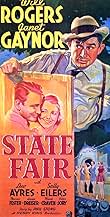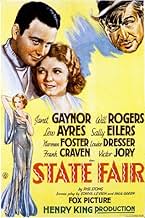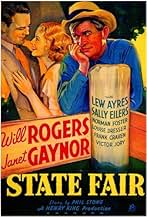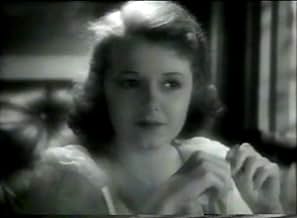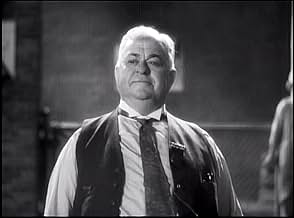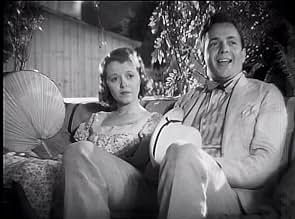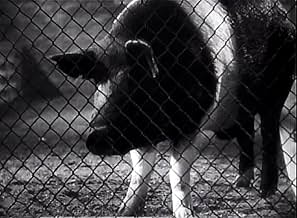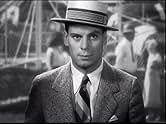IMDb-BEWERTUNG
6,7/10
1256
IHRE BEWERTUNG
Füge eine Handlung in deiner Sprache hinzuAn Iowa family finds adventure, love, and heartbreak when they spend a week at the state fair.An Iowa family finds adventure, love, and heartbreak when they spend a week at the state fair.An Iowa family finds adventure, love, and heartbreak when they spend a week at the state fair.
- Für 2 Oscars nominiert
- 5 Gewinne & 2 Nominierungen insgesamt
Erville Alderson
- Martin - Hog Breeder
- (Nicht genannt)
Joe Caits
- Baker A. Noblemable - Judges' Secretary
- (Nicht genannt)
Hobart Cavanaugh
- Professor Fred Coin - Hog Judge
- (Nicht genannt)
Judge Dike
- Contest Judge
- (Nicht genannt)
Harry Holman
- Professor Tyler Cramp - Hog Judge
- (Nicht genannt)
Doro Merande
- Mrs. Metcalfe's Acquaintance at Food Contest
- (Nicht genannt)
Edward Mundy
- Barker
- (Nicht genannt)
Dike of Rosedale
- Blue Boy - a Hog
- (Nicht genannt)
John Sheehan
- Barker at Aerial Act
- (Nicht genannt)
Empfohlene Bewertungen
This wonderful film from Fox is rarely seen these days, and it is such a shame. In the 1930s Janet Gaynor was a huge star, veteran of a number of silent features with Charles Farrell and others; while Will Rogers was one of the best-loved actors and personalities in the USA.
'State Fair' teams Gaynor and Rogers as daughter and father, and adds Norman Foster as her brother, and Louise Dresser (another silent screen veteran) as mother. They're all off to the State Fair; Wayne and Margie to look for fun and frolics, Mother to try to win a prize for mincemeat, and Father to get a prize for his hog, Blueboy. Will they all find the things they wish for? Lew Ayres and Sally Eilers might just have the answers! I really liked this version; I'm very familiar with both musical adaptations but this film is more folksy, more fireside, more farm ... and it works very well. It's a superior product which deserves a clean-up and a decent video release.
The print I have is not brilliant, but is watchable. From what I can see this looks like a film which had high production values and I'm sure it would look great if it is was in pristine condition.
'State Fair' teams Gaynor and Rogers as daughter and father, and adds Norman Foster as her brother, and Louise Dresser (another silent screen veteran) as mother. They're all off to the State Fair; Wayne and Margie to look for fun and frolics, Mother to try to win a prize for mincemeat, and Father to get a prize for his hog, Blueboy. Will they all find the things they wish for? Lew Ayres and Sally Eilers might just have the answers! I really liked this version; I'm very familiar with both musical adaptations but this film is more folksy, more fireside, more farm ... and it works very well. It's a superior product which deserves a clean-up and a decent video release.
The print I have is not brilliant, but is watchable. From what I can see this looks like a film which had high production values and I'm sure it would look great if it is was in pristine condition.
This 1933 film of STATE FAIR is nearly impossible to see except on one Fox cable channel, but is the best of all versions, with genuine and unsentimental writing and acting. Director Henry King propels the leisurely plot with a thrilling moving camera that efficiently depicts the varied sensations of a state fair, from wholesome contest fun to the menace of barkers and carnies.
King has a consistent handle on the theme, that the state fair is a quick microcosm of life, an event that thrusts persons together in a venue that makes possible the "rollercoaster" of infatuation (and sex--this is pre-code pleasure), the tension of competition, and the diversion from hard work in this depression era America. Even "Blue boy" the hog and "self object" of Will Rogers' likeable character discovers the same conflicted feelings of sexual attraction. The cast is excellent, with standouts of Rogers, a most natural performer, in a film that is unpolluted by awkward stereotyped supporting players common to his films. A truly stunning-looking Lew Ayres is a dream of a roller coaster partner, and Victor Jory in his silk shirt perfectly embodies the carnie whom small children fear to encounter outside the midway. But it's the quiet moments that register the most--the pensive characters driving at dusk to the fair, full of private anticipation, still totally one as a family. Modern films rarely dare such introspective glimpses, but this film doesn't bore because it is so true. These rural citizens are proud and flawed, but like the wonderful characters in MEET ME IN ST. LOUIS, they embrace the chance to take in the fun and mystery of life.
King has a consistent handle on the theme, that the state fair is a quick microcosm of life, an event that thrusts persons together in a venue that makes possible the "rollercoaster" of infatuation (and sex--this is pre-code pleasure), the tension of competition, and the diversion from hard work in this depression era America. Even "Blue boy" the hog and "self object" of Will Rogers' likeable character discovers the same conflicted feelings of sexual attraction. The cast is excellent, with standouts of Rogers, a most natural performer, in a film that is unpolluted by awkward stereotyped supporting players common to his films. A truly stunning-looking Lew Ayres is a dream of a roller coaster partner, and Victor Jory in his silk shirt perfectly embodies the carnie whom small children fear to encounter outside the midway. But it's the quiet moments that register the most--the pensive characters driving at dusk to the fair, full of private anticipation, still totally one as a family. Modern films rarely dare such introspective glimpses, but this film doesn't bore because it is so true. These rural citizens are proud and flawed, but like the wonderful characters in MEET ME IN ST. LOUIS, they embrace the chance to take in the fun and mystery of life.
The thing about summer love is that it is uncertain and often temporary. Normally, only the young are afflicted, and, as such a powerful emotion is a novelty to the recipient, it can be very hurtful. "State Fair" chronicles two of these.
The Frake family is preparing for the Iowa state fair, all with different expectations. Pa (Will Rogers) hopes his prize boar, Blue Boy, can win first prize and Ma (Louise Dresser) pins her hopes on her pickles and mincemeat. Teenagers Wayne and Margy are just hoping for... they're not exactly sure, but something exciting.
The nominal star here is Will Rogers and he gives a folksy, homespun performance as Pa - makes you wonder if he's acting or not. Louise Dresser is Ma just as you would imagine Ma would be. She was one of our best actresses and retired too soon. The story, though, focuses on the two young players, Norman Foster (Wayne) and Janet Gaynor (Margy) and their adventurous encounters with complete strangers.
This is a 'Pre-Code' picture and tame by todays (lack of) standards, and so both are seen conversing in bedrooms with above-mentioned strangers (smelling salts, please), but the picture is so well-written that the breach of decorum is hardly noticeable. The story is true to life and shot through with vignettes of family life from an earlier time in America. If you were not alive in the 1930's and did not live in the Midwest, you should see this movie. It is a quintessential family picture with lots of heart, as well as exceptional performances by all parties.
The Frake family is preparing for the Iowa state fair, all with different expectations. Pa (Will Rogers) hopes his prize boar, Blue Boy, can win first prize and Ma (Louise Dresser) pins her hopes on her pickles and mincemeat. Teenagers Wayne and Margy are just hoping for... they're not exactly sure, but something exciting.
The nominal star here is Will Rogers and he gives a folksy, homespun performance as Pa - makes you wonder if he's acting or not. Louise Dresser is Ma just as you would imagine Ma would be. She was one of our best actresses and retired too soon. The story, though, focuses on the two young players, Norman Foster (Wayne) and Janet Gaynor (Margy) and their adventurous encounters with complete strangers.
This is a 'Pre-Code' picture and tame by todays (lack of) standards, and so both are seen conversing in bedrooms with above-mentioned strangers (smelling salts, please), but the picture is so well-written that the breach of decorum is hardly noticeable. The story is true to life and shot through with vignettes of family life from an earlier time in America. If you were not alive in the 1930's and did not live in the Midwest, you should see this movie. It is a quintessential family picture with lots of heart, as well as exceptional performances by all parties.
I was really surprised how much this film moved me. It's really Gaynor and Ayers' movie with Will in more of a supporting role. Well directed with good effects for the era, my enjoyment was genuine and heart felt. Others might enjoy it in terms of sociology or film history,I hated the Pat Boone version and the Dana Andrews' was only alright. I watched it on TCM where the print had several breaks and audio pops.
Aside from the John Ford/Will Rogers films (embarrassing stereotypes aside) Will's sound films are very mixed. They're tailor made for his persona but weak casts, low production and stage bound screenplays have you reaching for the FF. He redeems most of them but I'm happy to find this solid work made shortly before his death. Surprised it escaped my attention until now.
Aside from the John Ford/Will Rogers films (embarrassing stereotypes aside) Will's sound films are very mixed. They're tailor made for his persona but weak casts, low production and stage bound screenplays have you reaching for the FF. He redeems most of them but I'm happy to find this solid work made shortly before his death. Surprised it escaped my attention until now.
Overshadowed in this day and age by the two musical film versions that succeeded it, this version of State Fair provides a great showcase for the personality and talent of American institutions Will Rogers. Although I was surprised to see that in the billing, Fox's main female star at the time, Janet Gaynor, was billed above him. The power of what winning the first Best Actress Oscar can get you.
It was probably only natural that the two would eventually be in a project together. Gaynor always played good girls, fresh from the farm like Melissa Frake, her best example of that is Esther Blodgett in A Star Is Born. As for Rogers, his patented brand of homespun humor had already established his legend.
When I did a review of Junior Bonner, I said that the film was simply the story of a rodeo family's day at the Presscott Frontier Rodeo. State Fair is a simple film, without any pretensions; the story of the Frake Family and its visit to the State Fair where all of them have an unforgettable time.
I wouldn't believe it, but Will Rogers never had a better straight man than his prize hog Blue Boy who perks up and struts his stuff when an attractive sow comes to his attention. But he's far from the only one who finds romance.
Janet Gaynor meets small city reporter Lew Ayres who says that even though the paper is a Republican one, don't blame him and the rest who have to work there to make a living. Republicans were not highly thought of in the wake of the Depression back in the day. Her wholesomeness attracts him.
As for son Norman Foster he gets quite a lesson in love in a most explicit before the Code encounter with trapeze artist Sally Eilers. Surprising for a Will Rogers film in my humble opinion.
Even Louise Dresser comes home a winner, taking first prize in just about everything she prepares due to Rogers spiking her cooking liberally with some schnapps. He knew the best way to the judge's heart.
State Fair is a great piece of nostalgic Americana and a great showcase for that American institution named Will Rogers.
It was probably only natural that the two would eventually be in a project together. Gaynor always played good girls, fresh from the farm like Melissa Frake, her best example of that is Esther Blodgett in A Star Is Born. As for Rogers, his patented brand of homespun humor had already established his legend.
When I did a review of Junior Bonner, I said that the film was simply the story of a rodeo family's day at the Presscott Frontier Rodeo. State Fair is a simple film, without any pretensions; the story of the Frake Family and its visit to the State Fair where all of them have an unforgettable time.
I wouldn't believe it, but Will Rogers never had a better straight man than his prize hog Blue Boy who perks up and struts his stuff when an attractive sow comes to his attention. But he's far from the only one who finds romance.
Janet Gaynor meets small city reporter Lew Ayres who says that even though the paper is a Republican one, don't blame him and the rest who have to work there to make a living. Republicans were not highly thought of in the wake of the Depression back in the day. Her wholesomeness attracts him.
As for son Norman Foster he gets quite a lesson in love in a most explicit before the Code encounter with trapeze artist Sally Eilers. Surprising for a Will Rogers film in my humble opinion.
Even Louise Dresser comes home a winner, taking first prize in just about everything she prepares due to Rogers spiking her cooking liberally with some schnapps. He knew the best way to the judge's heart.
State Fair is a great piece of nostalgic Americana and a great showcase for that American institution named Will Rogers.
Wusstest du schon
- WissenswertesDirector Henry King went to the 1932 Iowa State Fair and Exposition in Des Moines with Stong and a camera crew at the invitation of the fair and filmed background material there. Joseph A. Valentine and Edwin Hammeras photographed background plates, atmospheric shots and race sequences at the fair and used the new Eastman Grayback Background Negative film stock. The rest of the production was shot an Eastman Supersensitive Negative stock and used two cameras wherever possible. Fox purchased three hogs from the fair, including the grand champion, Dike of Rosedale, who was cast as "Blue Boy."
- PatzerThe storekeeper says that Henry VIII had eight wives. He had six.
- Zitate
Abel Frake: Wayne's got a girl.
Storekeeper: So did Henry VIII, eight of them, but he always showed up at every state affair with a new one.
- Crazy CreditsMost of the credits appear as posters being put up on billboards by workmen. In the film's final scene, there is a heavy rain, and as it washes away the poster bearing the title "State Fair", we see that it was pasted over another poster that says "The End".
- Alternative VersionenThe original version had a bedroom scene in which Emily and Wayne are heard talking offscreen with Emily's negligee lying on a chair, suggesting that they were in bed together for illicit sex. This scene was cut in 1935 from all existing prints in order to get an approval certificate from the PCA for a re-release. The scene is not included in the print that the Fox Movie Channel currently broadcasts.
- VerbindungenFeatured in Lest We Forget (1937)
- SoundtracksRomantic
(1933) (uncredited)
Music by Louis De Francesco
Lyrics by Val Burton and Will Jason
Played during the opening credits and often in the score
Sung offscreen by an unidentified male at the fair
Partially sung a cappella by Janet Gaynor
Top-Auswahl
Melde dich zum Bewerten an und greife auf die Watchlist für personalisierte Empfehlungen zu.
- How long is State Fair?Powered by Alexa
Details
- Erscheinungsdatum
- Herkunftsland
- Sprache
- Auch bekannt als
- State Fair
- Drehorte
- Des Moines, Iowa, USA(State Fair and Exposition exterior scenes)
- Produktionsfirma
- Weitere beteiligte Unternehmen bei IMDbPro anzeigen
- Laufzeit
- 1 Std. 39 Min.(99 min)
- Farbe
- Seitenverhältnis
- 1.37 : 1
Zu dieser Seite beitragen
Bearbeitung vorschlagen oder fehlenden Inhalt hinzufügen

